It is no secret that Millennials are quickly transforming the workforce with their hyphenated working style. Co-working, digital-nomadism, remote-working, location-independent are just a few of the compounded labels we now associate with a diverse and expanding employee profile.
A survey conducted last year by the Coworking Europe Conference estimated that more than 1 million people will belong to co-working spaces worldwide by the end of 2017. And, according to a Hostelworld survey, 62 percent of US citizens would consider working remotely while traveling abroad if their company would support it. In the latest edition of the New Horizons survey, the only recurring global survey of the youth and student travel market, WYSE Travel Confederation updated the term ‘global nomad’ to ‘digital nomad.’
Preliminary results of the survey will be reported during the 2017 World Youth and Student Travel Conference in Montréal. The findings of these surveys, and others, suggest that not only are Millennials changing our approach to employment, their strong desire for flexibility and mobility is also redefining our perception of travel and our interpretation of modern work and living spaces.
Carefully Curated Experiences
One company getting in on the ground level of this emerging market is We Roam. “We were two corporate suites with little experience in the work and travel space or even starting and running a company,” Co-founder Sean Harvey then clarified they actually had zero experience in this realm when their company vision was born over beers in a New York City dive bar. Sean and his business partner Nathan Yates decided to hone in on the wants and needs of a specific hyphenated worker – those who are location-independent.
“We cater to people who have designed and integrated their professional and personal lives so that work suits them and how they choose to dedicate their time,” explained Sean. For ‘Roamers,’ (as his clients are referred to) travel is a perk of their tailored lifestyle instead of a means for nomadism.
Everything about the We Roam experience is carefully curated. The working and living locations, group activities, professional growth opportunities, and even the participants themselves are all selected with the idea of creating the optimal experience for everyone involved. Prospective Roamers are chosen through an application process. “Group dynamic is really important to us. Some people may not really be mentally prepared for or adjust to the lifestyle our Roamers take on. Others do not prioritize their careers in a way that we have come to expect from our clientele,” said Sean.
Another approach to the hyphenated worker can be found at Crew Collective in Montréal. Crew Collective is focused on the space and atmosphere they provide workers, instead of the specific type of person they attract.
“A vast majority of our members work in a business or have their own business,” said Sophie Silkes, head of Crew Collective sales and communications. “”We have become a bit of a hotspot for digital nomads who are travelling through Montréal and want a place to stay for a month, but our constant member base mostly has a more traditional job as opposed to freelance. A few are remote-workers.”
A main draw for this diverse clientele is what Sophie said also attracted her to working with Crew Collective- the space itself. “Our building is a 1928 restored bank building, a historic landmark in Canada, and we’ve turned it into an uber-futuristic workspace-cafe. I was excited to take on a project that promised a lot of autonomy and also an opportunity to contribute something lasting and beautiful to Montréal.” This year Crew Collective was named one of the five most beautiful coworking spaces in the world by Forbes.
Beyond stunning architecture and design, Crew Collective offers a range of memberships and benefits to provide every type of worker the space they need to be productive and inspired within their budget. “We’ve crafted with utmost care a large spectrum of membership offerings to tailor to someone who can afford everything from a full-time, decked out dedicated workspace to someone who wants to come in 2 times a week and work from their laptop in our space,” explained Sophie. Clients can even opt for concierge service which will provide them with mail delivery, cafe-service at their desk, and assistance with organizing meetings.
Trendsetter Turns Mainstay
Sean describes the market as in its ‘ïnfancy’ when he and Nathan launched We Roam less than two years ago. However, just a few years have brought swift maturation and growth. With Millennials expected to comprise more than 75 percent of the workforce by 2025, Sean believes remote working will go beyond an added benefit for employees and, in fact, become a tool for employee recruitment, retention, and development. Looking to the future, he said We Roam is largely focused on adding corporate partnerships. “Let’s face the facts, Millennials aren’t interested in orthodox benefits. So when a future young talent is faced with deciding between two companies, one of which offers the benefit of joining We Roam, while the other doesn’t, which employer is going to win the round?”
Sophie said co-working spaces such as Crew Collective are also seeing steady growth as employers strive to match the desire for flexibility and mobility that has defined Millennial workers.
“The desire has, of course, always been there. Freelancing and consulting work is nothing new and people have worked from home independently for ages. I think that it’s relatively new that companies encourage their employees to work remotely for a day or several each week.” She said the uptick in remote work, coupled with added possibilities for online work, has expanded the opportunities for diverse and innovative workspaces. “We are moving even further away from traditional cubicle coworking.”
New Work-Life Model
As the traditional workspace becomes a relic of the past, the idea of work-life balance is becoming, “obsolete,” according to Sean. “Personal and professional lives have been so closely integrated that it is no longer about balancing them, but rather integrating them in a way that they complement and enhance each other,” he explained. “Something that I am starting to see more and more of is accommodation plus co-working spaces actually being built with groups like ours in mind.”
Sean said he sees the rise of combined working and living spaces within both the location-independent and local community as a win for everyone. “I think we are injecting a new element into these types of spaces being built around the world. Work-life integration is here to stay – it’s the future. That’s the reality. And with that comes the need for programs like ours to facilitate a healthy, optimal and fulfilling integration.”
While Crew Collective does not offer living space, the company has its sights set on being a vital part of the Montréal community. “We revitalized an unused historic landmark, which is UNESCO-protected, in the heart of Vieux Montréal and have opened it as much to the public as we have used it to create opportunities for membership engagement,” said Sophie. “Coworking space managers and investors have a responsibility to make underused buildings better- to create more opportunities for community building through curating space for good work and social connection through their models and their programming.”
For Crew Collective, the modern balance of work and life is about creating welcoming and inspiring spaces, right in their own community. For We Roam, it is about creating inspiration within ourselves- through the discovery of new lands and cultures. According to Sean, “People like to throw around the word “like-minded” when they interact with our groups…I think of our Roamers as being “open-minded”. It’s a commonality that allows our clients to embrace the diversity in the group and build lasting relationships.”
Whether at home or abroad, it is obvious that Millennials are writing their own terms for living, working, and traveling in our modern, globally connected world. And you can bet the terms will include plenty of hyphenated words.
Sophie Silkes and Sean Harvey are panelists in the WYSTC 2017 session: Destination Everyday, The Rise of Digital Nomadism and the Coworking Space. The discussion will take place Wednesday, 27 September 11:30–12:30.
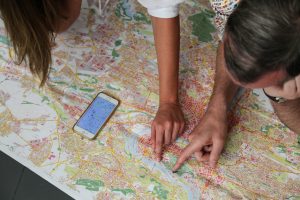

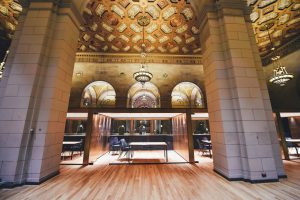
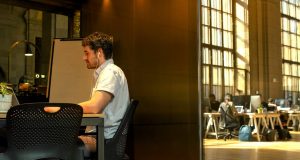
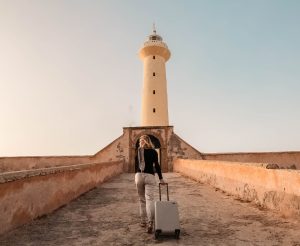
Recent Comments